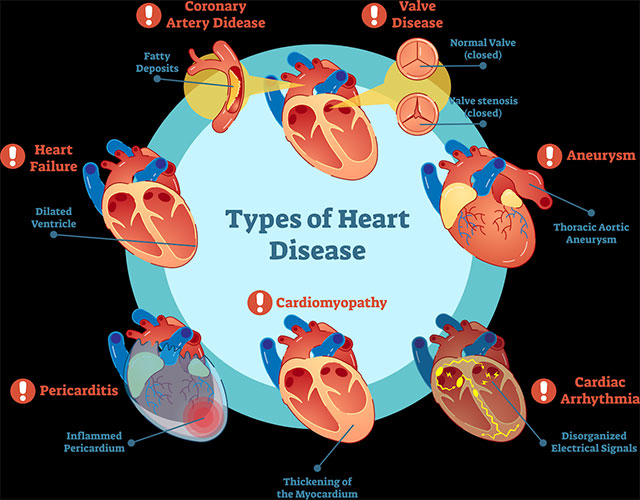By The Independent
Copyright independent

Doctors warn the gradual hardening of arteries is causing a surge in heart attacks and strokes, urging urgent prevention
Kampala, Uganda | PATRICIA AKANKWATSA | Atherosclerosis, the gradual hardening and narrowing of arteries, is quietly driving a surge of heart attacks, strokes, and premature deaths in Uganda. Experts now warn that without urgent prevention and stronger health interventions; the country could face a mounting cardiovascular crisis.
Cardiovascular disease is one of the leading killers in Uganda. Hypertension affects more than one in four adults, but fewer than 8% of those living with the condition know they have it.
According to Uganda Heart Institute, Uganda recorded 28,149 cardiovascular related deaths in 2019 with an age-standardized mortality rate of 246 per 100,000 people.
Speaking during a webinar hosted by Microlabs Ltd on Atherosclerosis: prevention and new regression on September 09, Dr. Brian Kiggundu an adult cardiologist at the Uganda Health Institute (UHI) opened with a severe warning.
“The fight against atherosclerosis begins with prevention. This disease builds silently over years, but the damage can be sudden and catastrophic. Early lifestyle changes and medical intervention can save lives,” he said.
Atherosclerosis is a progressive condition in which fatty deposits, or plaques, gradually build up in artery walls, narrowing them and restricting blood flow. Often developing silently over decades, it can suddenly trigger life-threatening events like heart attacks and strokes.
“Plaques form from cholesterol, fats, blood cells, and other substances, reducing oxygen supply to organs and tissues. If a plaque ruptures, blood clots may block arteries entirely, causing heart failure, stroke, or even limb loss,” said Dr Kiggundu.
Low-density lipoprotein (LDL) cholesterol often called bad cholesterol is the main cause of atherosclerosis.
“When too much LDL builds up in the walls of arteries, it triggers the body’s immune system, which creates fatty deposits called foam cells the first sign of the disease,” Dr Kiggundu added.
Studies show that smaller, denser LDL particles are even more dangerous because they slip into arteries more easily and cause more inflammation.
“That means even people with normal cholesterol levels overall may still be at risk if their cholesterol profile is dominated by these smaller particles”.
Professor Emmy Okello a senior consultant cardiologist at the Uganda Heart Institute, noted that the disease is fueled by both modifiable and non-modifiable factors.
“Smoking, high blood pressure, diabetes, obesity, and physical inactivity are the biggest drivers we can change,” he said.
The consequences, Dr. Okello added, are severe and far-reaching. Narrowing of the coronary arteries leads to chest pain and heart attacks. Blockages in the brain’s blood vessels trigger strokes. In the legs, atherosclerosis manifests as peripheral artery disease, which in severe cases can result in gangrene and amputation.
“We are now seeing strokes and heart disease in younger patients, a worrying trend that reflects changing diets, sedentary lifestyles, and rising obesity,” he observed.
Dr. Okello emphasized that prevention is still Uganda’s most effective weapon. He pointed to diet and lifestyle as critical areas of focus.
“Reducing red meat, fried foods, and processed snacks, while increasing fruits, vegetables, whole grains, and fish, can make a profound difference,” he said.
“At least 150 minutes of moderate exercise per week helps maintain healthy weight and improves circulation. Quitting smoking and moderating alcohol use are equally vital.”
New treatments
While prevention remains the first line of defense, Uganda’s cardiologists are looking to new treatments to slow or even reverse plaque buildup. Statins remain the cornerstone therapy, lowering cholesterol production in the liver and stabilizing plaques. Ezetimibe, another established drug, reduces cholesterol absorption in the intestines.
Newer medicines are broadening options. PCSK9 inhibitors, powerful injectables now approved in many countries, enable the liver to clear significantly more LDL from the blood. Bempedoic acid, an oral drug, offers an alternative for patients’ intolerant to statins, activating only in the liver and thus avoiding muscle pain, a common side effect.
“We are entering an era of regression therapies. But medicines alone cannot win the fight. Lifestyle change remains the foundation,” Dr. Kiggundu said.



